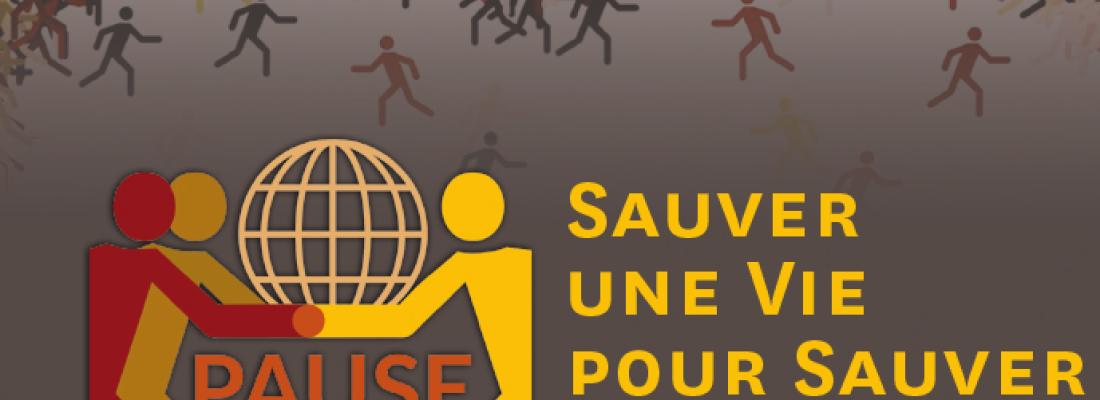Reading time 5 min
The PAUSE Programme: a helping hand for researchers in peril
Published on 24 April 2020

“In 2016, scientists working in zones of conflict in Syria, especially archaeologists, found themselves in dire straits. Their very lives were at stake, and the French scientific community started looking for ways to help, but it was never enough”, explains David Bruchon, in charge of communication and fundraising for PAUSE. Scientists sounded warning bells and Thierry Mandon, former Secretary of State for Higher Education and Research, took heed. Alarmed by the fact that not only the academic liberty but indeed the very lives of scholars were under threat by geopolitical crises, he decided to take action. And that is how PAUSE, a programme that offers emergency relief to scientists in peril, was born, on 16 January 2017, via an agreement signed by the ministries of National Education and Higher Learning, the Collège de France, and the Chancellery of the universities of Paris.
Support for foreign scientists in danger
The programme aims to offer safe harbour to scientists under threat for a long enough period of time to ensure their integration and the continuity of their work.
PAUSE grants incentive aid to public bodies of higher learning and research who wish to host foreign researchers and teacher-researchers with a fixed-term work contract. Financial support is capped at 60% of the total budget presented by the hosting body and varies depending on the family situation and professional experience of the researchers, be they at the doctoral or post-doctoral level, or senior researchers.
The host establishment makes every effort to ensure both the professional and personal integration of the researchers during their stay and beyond, for current and future projects alike. It assists with the administrative steps necessary for sorting out their situation, getting integrated into local societies and cultures, securing a place to live, etc.
INRAE takes pause
Between 2017 and 2019, the participation of INRA, which has since become INRAE, evolved. The Institute took in 1-3 candidates within the framework of a hosting agreement with PAUSE, while 2-3 candidates joined INRAE’s partnering laboratories.
Both men and women, from the Middle East or elsewhere, have joined different INRAE regional centres in Brittany and Normandy, the PACA region, Auvergne Rhône Alpes, Eastern France or the greater Paris region to work in a range of fields including plant protection, horticultural crops, the Mediterranean environment, forest ecosystems, agricultural risks and social sciences.
The ins and outs
Currently, the Ministry of National Education, the Ministry of Higher Education and Research, the Ministry of the Interior, and the Ministry for Europe and Foreign Affairs are all directly involved in implementing the PAUSE programme, as is the broader higher education and research community (CPU, CDEFI, CNRS, Inserm, Cnous, INRAE, Inria).
PAUSE is primarily funded by the Asylum, Migration and Integration Fund (AMIF), the Ministry of Higher Education and Research, and the Ministry of Culture. It also receives private funding from the Fondation de France and the Michelin Foundation.
In 2019, PAUSE rolled out a system to help scientists integrate professionally (financing for training, mainly in foreign languages, IT and digital technology), and forged partnerships with experts in the field (Action Emploi Réfugiés).
PAUSE launches several calls for candidates per year. A total of three are slated for 2020: the second is taking applications until 15 May 2020, and the third is scheduled for Autumn. Three criteria come into play during the selection process: level of urgency; quality of the scientific dossier; and terms and conditions of the hosting programme to help researchers get integrated both personally and professionally.
Reaching scientists all over the world
The programme must continue as long as there are scientists in danger
The motivation to pursue the programme for as long as necessary is tangible. “Repression comes in all shapes and sizes, not just the obvious ones. It can be related to new or old religions, gangs, etc.” says Laura Lohéac, executive director of PAUSE. As Hana Bacaer, PAUSE’s spokesperson at INRAE explains, “When the programme first started, most candidates were Syrian and Turkish researchers. But nowadays we get applications from Latin American and sub-Saharan African countries too”.
The ultimate goal of the programme is to help scientists return home and create a network of skills and knowledge which would be a vital asset for the academic and scientific research community, but also for society at large.
- 78 French establishments of higher learning and research bodies at the ready
- 201 scientists supported, of which 94 for a second year:
44% men, 56% women
33% doctoral candidates, 44% post-doctoral fellows and lecturers, 23% senior researchers and university professors
Figures from 2017, 2018, 2019
